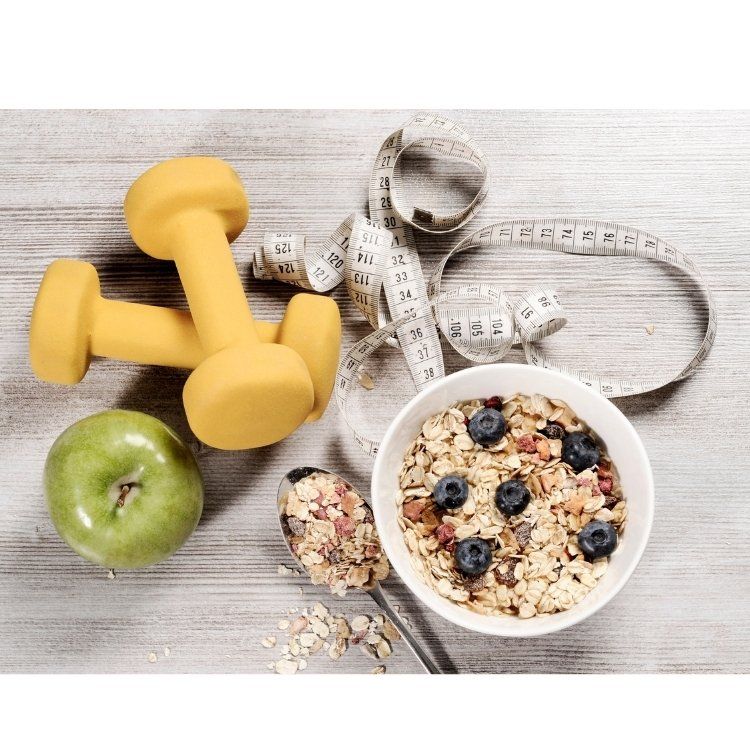Is Coffee Sabotaging Your Hormones and Weight? Here's What Every Woman Should Know
Why coffee is making you fat

By Anca Vereen | Integrative Dietitian & Somatic Psychotherapist
If you're doing all the right things — eating well, moving your body, reducing sugar — but you're still struggling with stubborn weight, fatigue, mood swings, or hormone havoc… it may be time to take a closer look at your morning coffee.
As an integrative dietitian and somatic psychotherapist, I’ve worked with countless women who unknowingly worsen their symptoms by holding onto their daily caffeine fix. This includes not just coffee, but also green tea, black tea, Earl Grey, and matcha.
You may love your cuppa — but your body may not.
🔬 The Hidden Impact of Caffeine on Your Body
Caffeine is a stimulant that sets off a cascade of stress responses in the body. It triggers adrenaline and cortisol, stresses the liver, disrupts hormones, impairs neurotransmitters, and can even slow metabolism over time.
⚡️ 1. Caffeine Overstimulates the Adrenals
Every time you drink coffee, your adrenal glands pump out cortisol — your stress hormone. And while a short burst of cortisol can help you focus, chronic spikes lead to fat storage, burnout, irritability, and hormonal dysregulation. Remember you are already stressed and running on cortisol therefore that extra cup of coffee is making things worse and not better.
🔥 2. Caffeine Burdens the Liver and impairs detox
Your liver plays a huge role in clearing excess hormones, toxins, and inflammatory chemicals. Caffeine adds to its workload, especially in women whose liver detox is already sluggish due to stress, poor sleep, medications, or hormonal imbalance.
🧠 3. Caffeine Disrupts Neurotransmitters and energy pathways
Caffeine can reduce serotonin and dopamine over time, increasing anxiety, mood swings, and food cravings. These shifts in brain chemistry can intensify emotional eating and make weight management feel impossible. In addition it also makes you feel tired, as its masking the fatigue and chronic dysregulation your body is already struggling with.
🧪 4. Coffee Isn’t Just Caffeine — It’s Contaminated
Most people don’t know that coffee is one of the most chemically treated crops in the world. Even organic beans can contain:
- Pesticide residues and herbicides
- Acrylamide (a chemical formed during roasting linked to inflammation, neurological damage and cancer)
- Mould and mycotoxins from improper storage
- Cross-contamination with gluten in manufacturing environments and transport
These hidden toxins affect digestion, liver health, immunity, and hormones — especially for women with existing sensitivities, and yet no one speaks out it.
🚫 Who Should Avoid Caffeine?
In my practice, I always recommend avoiding coffee and caffeine completely if you are:
- Dealing with PMS or PMDD
- Living with endometriosis or adenomyosis
- Experiencing perimenopausal or menopausal weight gain
- Diagnosed with thyroid or adrenal issues
- Struggling with unexplained fatigue, anxiety, or stubborn weight
- Have gut and brain problems
The truth is: coffee is not your friend even if you are healthy.... and if your body is already stressed, inflamed, or hormonally out of balance it will make matters worse.
🌱 What to Drink Instead
If you're ready to let go of caffeine but still want a comforting ritual, here are my favourite healing replacements:
- Rooibos or herbal teas – naturally caffeine-free and rich in antioxidants
- Dandelion root tea – supports liver detox
- Golden milk – calming and anti-inflammatory
- Warm lemon water with ginger and staranised– gently stimulates digestion and focus
💛 You Don’t Have to Hustle Through Hormonal Hell
The truth is: your body is always talking to you. And if it’s holding onto weight, feeling tired, reactive, or overwhelmed, it’s time to listen more deeply.
As an integrative dietitian and somatic psychotherapist, I work holistically — addressing not just what you eat, but how you feel, how you cope, and how your nervous system responds to life. Together, we’ll uncover what’s driving your symptoms, create a plan to rebalance your hormones, and bring your body back into alignment — naturally.
💬 Ready to Feel Like You Again?
Let’s get personal.
I offer one-on-one consults to help women like you understand their bodies, calm their hormones, and finally let go of what's no longer serving them — starting with that coffee cup.
👉 Book your session at ancavereen.com
You deserve clarity, energy, and balance — every single day.
📚 References
- Institute for Functional Medicine. “Caffeine and Cortisol: Stress, Hormones and Metabolism.”
- Environmental Working Group (EWG). “Pesticides in Coffee: What You Should Know.”
- Journal of Agricultural and Food Chemistry. “Occurrence of Mycotoxins in Coffee Beans.”
- Mayo Clinic. “Caffeine: How Does It Affect Blood Sugar, Mood and Weight?”
- Journal of Clinical Endocrinology & Metabolism. “Effects of Caffeine on Estrogen Levels.”
- National Institute of Environmental Health Sciences. “Acrylamide and Health Risks.”




